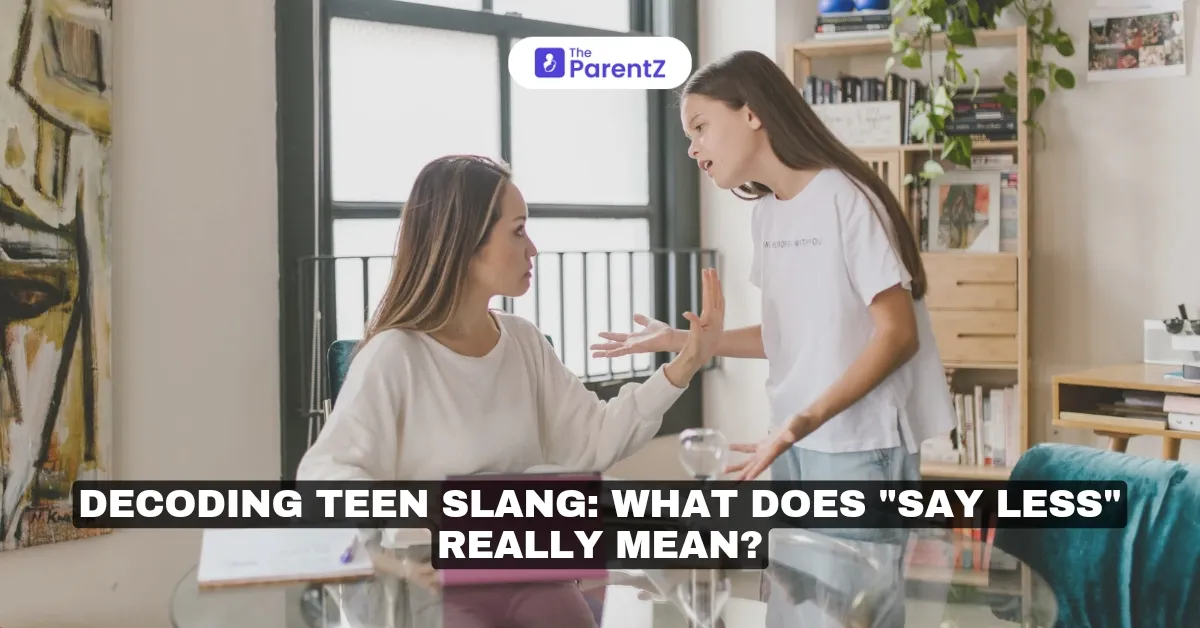If you’re around teenagers, you probably must have heard the phrase 'say less.’ So does that mean they actually want you to talk less? Of course, sometimes this might be true. However, there’s much to the story. The fun part is that teen slang is evolving way faster than adults can keep up with. In short, it's teenagers’ own language—a combination of shortcuts, cathcphrases, and sayings for an entire mood. And'say less’ is one such Gen Z teen slang that is widely used yet misunderstood.
Read below this article to learn what ‘Say Less’ actually means.
What Does ‘Say Less’ Mean?
‘Say less’ is a way of saying, ‘I get it,’ or ‘No need to explain further.’ It’s shorthand for ‘I understand,’ or simply ‘noted.’ So when a teen says'say less,’ he is actually indicating that they’re on board, fully aware of what’s happening, or simply don’t need any additional information. In other words, it is their way of giving a quick, efficient nod of agreement or understanding.
You will be surprised to know that this phrase isn’t exactly new. ‘Say less’ has origins in Black American Vernacular English (BAVE) and entered the mainstream culture through social media, music, and memes. Overall, this Gen Z trendy response communicates understanding with just two simple words.
Why Teens Love ‘Say Less’?
One of the biggest reasons why ‘Say Less’ has stuck around is that it perfectly suits the digital, fast-paced environment teenagers live in. According to a survey, teens spend an average of 7 hours and 22 minutes on their screens each day besides school and homework. So in an environment where conversations are often typed out in snippets or emojis, phrases convey a lot in a few words.
What’s more? It's brief and easy to remember. And versatile too! Moreover, it fits comfortably in text messages, social media comments, or in-person conversations. In fact, when you think about it, every teen trend from ‘LOL’ to ‘Slay’, and now, ‘Say Less’ screams simplicity.
How Parents Can Connect With Teen Slang?
The truth is, the generational slang gap is growing by the day. In fact, according to a study, nearly 60% of parents struggle to keep up with their teens’ language and feel left out of the conversation. However, knowing teen slang phrases can turn out to be important in bridging this gap, even when it feels outside of your comfort zone.
The good news is that understanding and using these terms can sometimes make a difference when it comes to connecting with your teen. Of course, you don’t have to use them all the time or even pretend to be a cool parent.
So, the next time they’re asking for permission to hang out with friends after school, reply with ‘Say less.’ This will not just let them know that you have put in efforts to understand their language but also give a few moments of laughter.
Takeaway
Teen slang is a secret language that most parents are struggling to understand. So by the time they learn about 'slay’, a new phrase, such as 'say less,’ becomes the trend. It’s time to make some time to understand and learn the teen slangs to understand and connect with your teen. While the phrase is barely two words, it has the power to communicate mutual understanding and trust. With just one phrase at a time, you are one step closer to bridging that generational gap.








Be the first one to comment on this story.